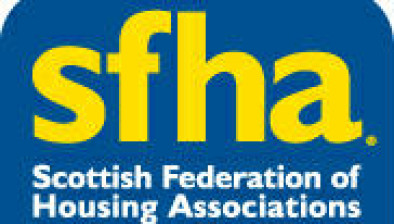Programme for Government: Scottish Government ‘disappoints’ on social housing and renter support
The Scottish Government is to establish a £10 million Tenant Hardship Loan Fund to help those struggling to pay rent during the coronavirus crisis.

Unveiled by First Minister Nicola Sturgeon during the Programme for Government 2020-2021 statement to the Scottish Parliament yesterday, the new fund will be part of a package to support people struggling to pay their rent due to financial difficulty associated with the pandemic.
The Tenant Hardship Loan Fund will open later in the Autumn and offer interest-free loans to those unable to access other forms of support for their housing costs. Further details of how to apply will be announced in due course.
The Discretionary Housing Payment (DHP) fund which helps tenants in receipt of benefits will increase by £3m, bringing the total to £19m. This is in addition to the £60m DHP budget already being used to fully mitigate the bedroom tax.
Emergency legislation put in place to protect private and social tenants from eviction during the coronavirus pandemic will be extended by six months, pending approval from the Scottish Parliament. The Coronavirus (Scotland) Act ensures evictions cannot take place before the end of September and this will now be extended for a further six months to March 2021.
Ministers will also introduce new regulations to allow for the notice period for eviction for anti-social or criminal behaviour to return to one month to protect other neighbours.
Housing minister Kevin Stewart said: “Tackling inequality and supporting people is a central theme of this year’s Programme for Government and this package of support for tenants is part of that.
“We already know that the pandemic has hit the lowest earners hardest and the Scottish Government has already put in place a range of actions in place to support tenants.
“This new £10m fund, along with a further increase in our Discretionary Housing Payment funds, will mean that no one should be left in a position where they cannot access support to pay their rent. The intention is that this fund will open in November for those unable to access other forms of support to help meet their housing costs.
“We have been clear that no landlord should evict a tenant because they have suffered financial hardship due to the pandemic. I fully expect landlords to be flexible with anyone facing such challenges, signposting them to the sources of financial support available, and tenants in difficulty should engage with their landlord and seek advice on the options open to them.
“I can confirm today that emergency legislation will be extended to ensure no evictions can take place until March 2021. However, since the initial legislation was introduced we have listened carefully to tenants and housing authorities concerned that a three month notice period is too long where tenants have behaved in an anti-social or criminal way. We are therefore reverting back to a one month period for repossession for such cases to ensure we can protect other tenants, neighbours and landlords who should not have to tolerate such behaviour.”
Other Programme for Government announcements
The First Minister also pledged to continue to make ending homelessness a national priority, and provide more support for new housing.
She said: “We will update the Ending Homelessness Together Action Plan, learning from the approaches taken during the pandemic. And we will significantly scale up Housing First. We will also take action to reduce the risk of people becoming homeless because of COVID related financial pressures.”
Ms Sturgeon set out the government’s plans for renewal while ensuring a green recovery is at the heart of the economic recovery, with job creation, support for health and wellbeing and work to tackle inequalities all high on the agenda.
A 20-year vision for energy efficient, zero carbon housing has been promised later this year, with access to outdoor space, transport links, digital connectivity and community services to be prioritised. For social housing, the government will set new standards on carbon emissions, digital infrastructure, and access to outdoor space and room for home working.
Ms Sturgeon said: “This vision will be based on extensive consultation, and the Social Renewal Advisory Board – whose recommendations have been influential in several areas of this Programme - will help ensure it reflects our experiences of the pandemic.
“It will also be backed by substantial new funding for the remainder of the next parliament, which will be confirmed in the Capital Spending review later in the year.”
The First Minister added that the government is working with the construction sector to catch up with its target to deliver 50,000 affordable homes by the end of this parliament.
She said: “Investment in housing is also an investment in our economy, in jobs and in our communities. Before lockdown, we were on track to deliver to deliver 50,000 new affordable homes by the end of this parliament, 35,000 of them for social rent.
“We are working with the construction sector to catch up and hit that target as soon as possible. That has been a £3 billion investment and we intend to expand on it.”
A National Transition Training Fund will support up to 10,000 people at risk of redundancy or unemployment. The Scottish Youth Guarantee will ensure every young person has the opportunity of work, education, or training. A new £100m Green Jobs Fund will be created while a new Inward Investment Plan will create 100,000 high value jobs over the next decade and boost GDP.
An independent review of the care system will be established to examine how adult social care can be most effectively reformed to deliver a national approach to care and support services. This will include consideration of a National Care Service.
Applications for the Scottish Child Payment will open in November 2020, with the first payments to be made in February 2021.
Other measures include:
- accelerating the roll-out of Community Treatment and Assessment Centres so more people can receive medical care in their community rather than going to hospital
- expanding digital access to health care to ensure more people can get the help they need
- £1.6 billion low carbon funding to secure a just transition to a net zero economy, including a £100m Green Jobs Fund, investment in heat and energy efficiency and industrial decarbonisation
- £500m for infrastructure to support active travel
- bringing 50,000 people into the digital world through the Connecting Scotland programme and creating a world class digital eco-system in Scotland
- introducing legislation on domestic abuse protection orders and progressing legislation to improve forensic medical examinations for victims of sexual assault
Responses - Scottish Government ‘disappoints’ on social housing
After the announcement, CIH Scotland national director, Callum Chomczuk, said: “We welcome the importance the First Minister placed on home in the programme for government. The £3m increase Discretionary Housing Payment money, £10m tenant hardship fund and further investment in Housing First were particularly welcome as housing professionals seek to support people to maintain their tenancies over the long term and ultimately end homelessness.
“But if we are serious about ending our housing crisis and addressing the social and economic problems exposed by COVID-19 then we need an ambitious programme of new social and affordable homes. The assurance that current 50,000 affordable and social housing programme will be completed as soon as possible was welcome, but we need to see the government commit to at least 53,000 social and affordable homes for the next Parliament.
“We recognise decision on the next social and affordable housing programme will be made after the allocation of the capital budget later this year, but if Scotland is to build back better after the pandemic then 53,000 social and affordable homes must be at the centre of our strategy.”
David Bookbinder, director at the Glasgow and West of Scotland Forum of Housing Associations (GWSF), said: “The lack of any new commitment to a longer term future new build programme is worrying. The Housing to 2040 vision has been around for more than a year now, but we’re still in the dark on what the Scottish Government’s real ambition is.
“On issue around the quality of what’s built, GWSF very much welcomes the intention to explore ways of building broadband connectivity into new homes. We note too the commitment to provide more new homes through offsite construction, but would caution against thinking that a large proportion of the new build programme can be provided in this way. The key to maximising housing’s contribution to carbon reduction lies in tackling poor conditions in existing private housing, including in older tenements.
“GWSF welcomes the £3m increase in funding for Discretionary Housing Payments, especially as DHPs can play a key role in supporting homeless households moving from temporary to settled accommodation.
“We’re disappointed that the provisions on notice periods still see social landlords treated no differently from private landlords, despite the much stronger legal protections which have long been in place for housing association and council tenants. The intention to revert notice periods back to one month for anti-social behaviour cases is welcome, but we’re sorry to see that Parliament will be asked to support extending the timescale in which six months’ notice must be given in arrears cases.
“This longer notice period doesn’t give extra protection to tenants who are working with their landlord to try to claim benefits and mitigate the arrears, as these are not the households our member associations would ever want to evict. Instead, the longer notices give more encouragement to tenants who say they don’t see the need to pay rent during COVID. Often these tenants already had significant arrears before COVID hit.
“On the £10m Tenant Hardship Loan Fund, we haven’t previously thought of loans as playing a role in helping people pay their rent, but we look forward to seeing more detail in due course. Currently, we don’t know if this is seen as primarily for those tenants paying high rents in the private sector.”
The Scottish Federation of Housing Associations (SFHA) welcomed the announcement that the notice period for evictions in the social housing sector on the grounds of anti-social and criminal behaviour will revert to one month from three.
Sally Thomas, SFHA chief executive, said: “SFHA has been calling for the notice period for evictions on the grounds of anti-social and criminal behaviour to revert to one month from three, so we are pleased the government has listened. The unintended consequence of the legislative change, introduced by the Coronavirus Scotland Act, was that other tenants and communities suffered as a result of the behaviour of some individuals. Some of our members were not able to let homes while the perpetrator of anti-social behaviour remained in place nearby – these properties could otherwise have provided homes for homeless households.
“It is vital that when there are cases of serious anti-social and criminal behaviour, social landlords can act quickly to minimise the effects on other tenants, so we welcome the government acknowledging this.”
Responses - Support for renters welcomed but debt concerns remain
Citizens Advice Scotland (CAS) said it welcomes support for renters and longer-term housing changes, but is awaiting more detail on other housing issues.
CAS social justice spokesperson Mhoraig Green said: “We’re glad to see that the extended eviction notice periods for rent arrears will continue until March next year, giving tenants crucial time to get help and advice with their finances. We’ve also been calling for more cash in the hands of tenants to help catch up on arrears and pay rent, so the £3 million increase for Discretionary Housing Payments is welcome.
“However, a tenant loan fund risks just moving tenant debt around so we hope to continue working with the Scottish Government on other solutions to make sure people can stay in their homes throughout and beyond the pandemic. We look forward to seeing short-term let regulations come into force next year and seeing the outcome of the review into purpose-built student accommodation.”
Gordon MacRae, assistant director for communications and advocacy at Shelter Scotland, said: “The answer to rising tenant debt is not another form of debt.
“This proposal is tone deaf to the needs of renters and was cooked-up behind closed doors with no consultation with tenants and their representatives.
“The Scottish Government must produce a solution that doesn’t see tenants footing the bill for this pandemic.”
John Blackwood, chief executive of the Scottish Association of Landlords (SAL), added: “We have consistently supported measures to help tenants pay their rent and prevent arrears whilst urging landlords to continue to be flexible and understanding, reducing rent and writing off arrears where possible for those affected by the pandemic.
“We welcome the Tenants Hardship Loan Fund but are concerned tenants will rightly be cautious of accessing a loan that would add to their debt, a concern we also expressed with the Landlord Loan Scheme. We hope the Scottish Government will consider additional support in grant form to help tenants pay their rent and prevent us facing a greatly amplified problem for a key part of the housing sector down the line.”
Though welcoming the introduction of the £10m hardship fund, Living Rent warned that there is nothing to stop landlords from simply raising rent once they know that this fund is available to tenants. The campaign group said the only way to properly support tenants during this pandemic is the introduction of rent controls.
Similarly, the six-month extension of the eviction protections is a “step in the right direction”, but tenants have and will slip through this legislation, it added. Living Rent called on the government to commit to a total eviction ban or else be faced with further public health issues.
Maria Torres-Quevedo, a spokesperson for Living Rent, said: “We at Living Rent welcome the SNP’s commitment to supporting tenants. While we have yet to hear the details of the proposed Tenant Hardship Fund, we know that the only solution to the housing crisis that is already materialising is to implement rent controls and ban evictions.
“The Scottish Government’s provision of interest free loans to help tenants pay rent will only push the burden of financial hardship further down the line. Furthermore, landlords can abuse this policy by raising rents in the knowledge that their tenants can apply to this fund to meet higher monthly payments. This measure is funnelling public money to landlords while doing little to support tenants or to make substantive changes to an unsustainable rental market.
“Many already struggled with high rents before the pandemic, and a loan based solution is not a feasible long term strategy for them. The burden of proving that their financial difficulty is the result of the pandemic, as well as the requirement that tenants first look elsewhere for housing cost support makes this measure exclusionary and does little to address the longstanding and widespread nature of Scotland’s housing crisis.
“This measure has already taken too long to implement. The eviction prevention legislation has failed to protect numerous tenants from slipping through the cracks and facing eviction due to rent arrears that have accrued over the past six months. The Scottish Government needs to act immediately to protect tenants through rent controls and a full eviction ban.”
The hardship fund is, however, attracting envy from across the border.
Chris Norris, policy director for the National Residential Landlords Association, said: “We welcome today’s announcement which follows similar steps taken in Wales and we call on the UK Government to introduce similar help for tenants in England. The best way to prevent repossessions is to tackle the root cause by ensuring tenants are able to pay their rent.
“Although landlords have been doing all they can to support tenants struggling to pay their rent because of the pandemic, it is not sustainable to expect rent arrears to build indefinitely with no hope of paying them off.
“Once again the UK Government finds itself trailing behind the rest of the UK. It is time to deliver a similar scheme to support tenants and landlords in England.”
Responses - Boost for investment in warm homes
The Existing Homes Alliance welcomed the multi-year budget commitment of £1.6bn over the next parliament to making homes warm, zero carbon and affordable to heat by 2040.
Lori McElory, chair of the Existing Homes Alliance, said: “Building retrofit projects are critical to deliver a fairer and greener recovery. They are value for money investments because they provide an immediate economic impact, all over the country. They are ‘shovel ready’ and use local labour and SMEs. This investment will also improve health and wellbeing, saving money for the NHS and helping to eradicate fuel poverty.
“We look forward to studying the detail of these announcements to understand how they will meet the welcome intent of all buildings being zero emissions from heat by 2040.”
Fabrice Leveque, acting head of policy at WWF Scotland, added: “There were some welcome steps announced by the First Minister to help Scotland’s green recovery from the COVID-19 crisis. The increase in funding to make our homes more energy efficient, investment in walking and cycling and a focus on green skills, will all help rebuild the economy and bring wider benefits like cleaner air and improved health to the people of Scotland.
“The First Minister rightly recognises that we are facing climate and nature emergencies. Whilst an increase to tree planting is welcome there is little to build on last year’s good commitments to accelerate emissions cuts through land use and the step change required to restore nature.
“The recent storms that hit Scotland have highlighted the potential costs of failing to act with urgency, and it is vital that the Scottish Government now turns its plans quickly to reality.”









